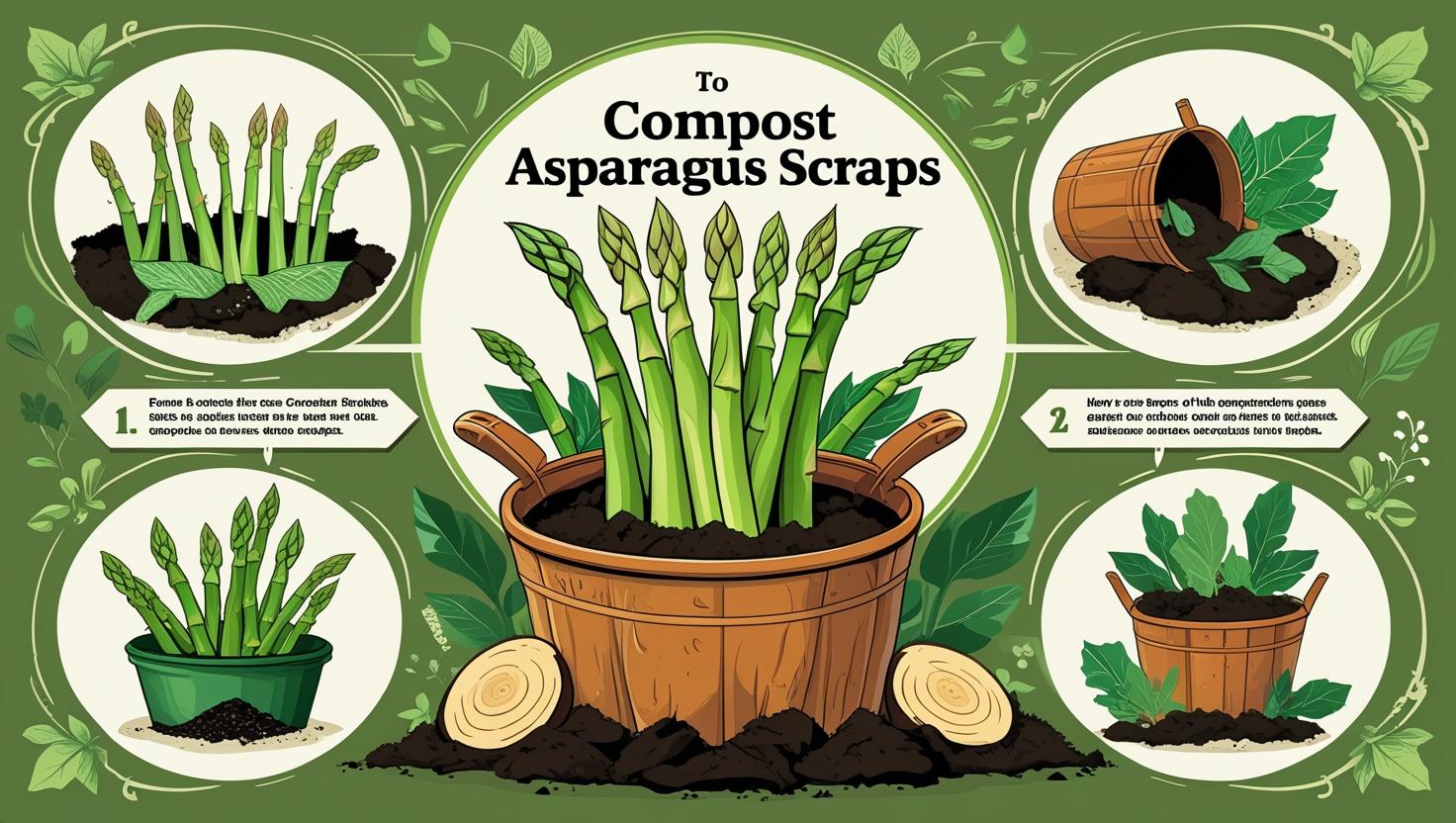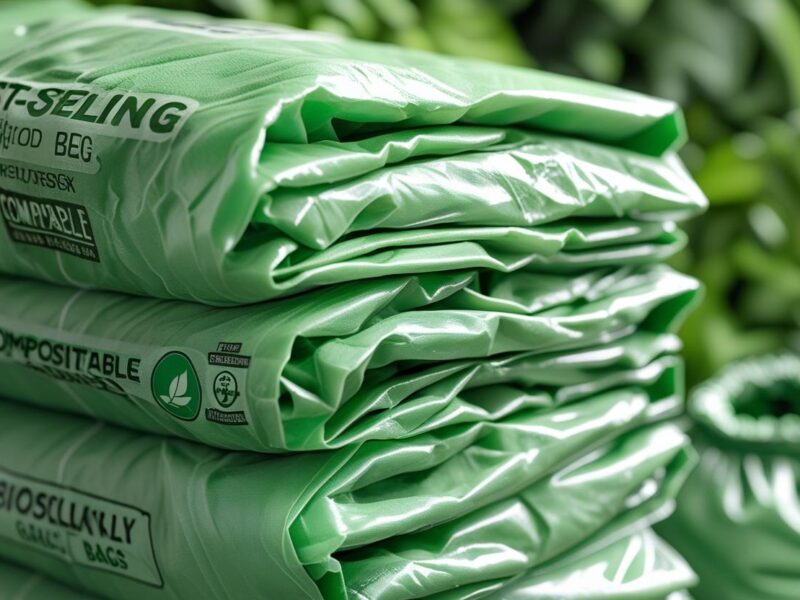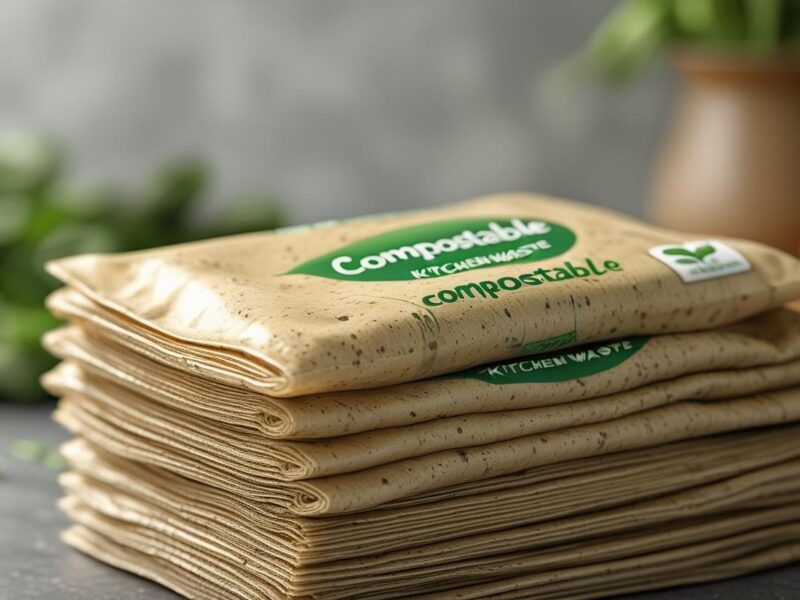Composting has become an essential step toward sustainable living, and asparagus is no exception when it comes to recycling organic waste. Whether you’re trimming asparagus stalks for dinner or dealing with garden trimmings, knowing how to compost them effectively can help you create nutrient-rich soil for your plants. In this article, we’ll explore why asparagus is perfect for composting, how to do it right, and tips to make the process faster and more effective.
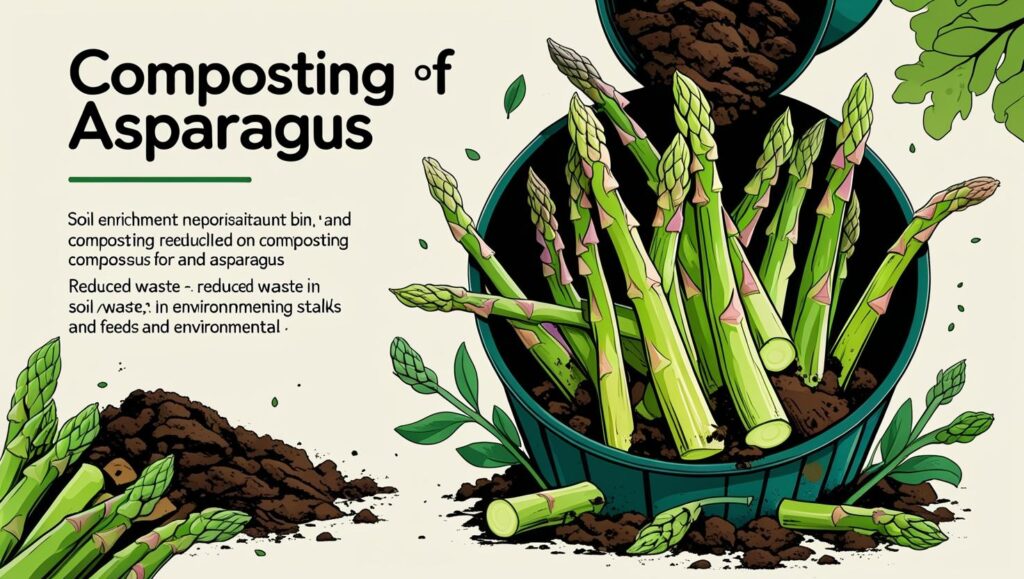
Why Compost Asparagus?
Asparagus is a natural, biodegradable vegetable that can break down into valuable compost with the right method. Adding asparagus scraps to your compost pile helps:
- Reduce kitchen waste – Less food waste in landfills.
- Enrich soil – Adds organic matter and nutrients like nitrogen.
- Improve plant growth – Boosts soil structure and water retention.
- Support eco-friendly living – Minimizes environmental impact.
Note: Asparagus stalks can be fibrous and tough, so chopping them into smaller pieces before composting speeds up the breakdown process.
How to Compost Asparagus (Step-by-Step)
1. Prepare Your Asparagus Scraps
- Remove rubber bands or packaging.
- Chop into 2–3 cm pieces for faster decomposition.
2. Balance with Greens and Browns
- Greens (Nitrogen-rich): Asparagus scraps, vegetable peels, fruit waste.
- Browns (Carbon-rich): Dry leaves, shredded newspaper, cardboard.
Ratio Tip: Aim for 2 parts brown to 1 part green for best results.
3. Maintain Proper Moisture
- Keep your compost pile as damp as a wrung-out sponge.
- If too wet, add more browns; if too dry, sprinkle some water.
4. Aerate Regularly
- Turn the compost every 7–10 days to speed up decomposition.
- Oxygen helps break down fibrous asparagus stalks faster.
Top Composting Methods for Asparagus Waste
1. Backyard Compost Bin
- Ideal for larger amounts of kitchen and garden waste.
- Works well if you generate asparagus scraps frequently.
Pros: Low-cost, eco-friendly, easy to manage.
Cons: Requires space and time.
2. Indoor Compost Bin
- Perfect for small kitchens or apartments.
- Use bokashi bins or countertop composters.
Pros: Odor-controlled, space-saving.
Cons: Limited capacity.
3. Worm Composting (Vermicomposting)
- Red wigglers can process chopped asparagus scraps.
- Avoid giving worms too much at once to prevent odor.
Pros: Produces nutrient-rich worm castings.
Cons: Needs monitoring to avoid overfeeding.
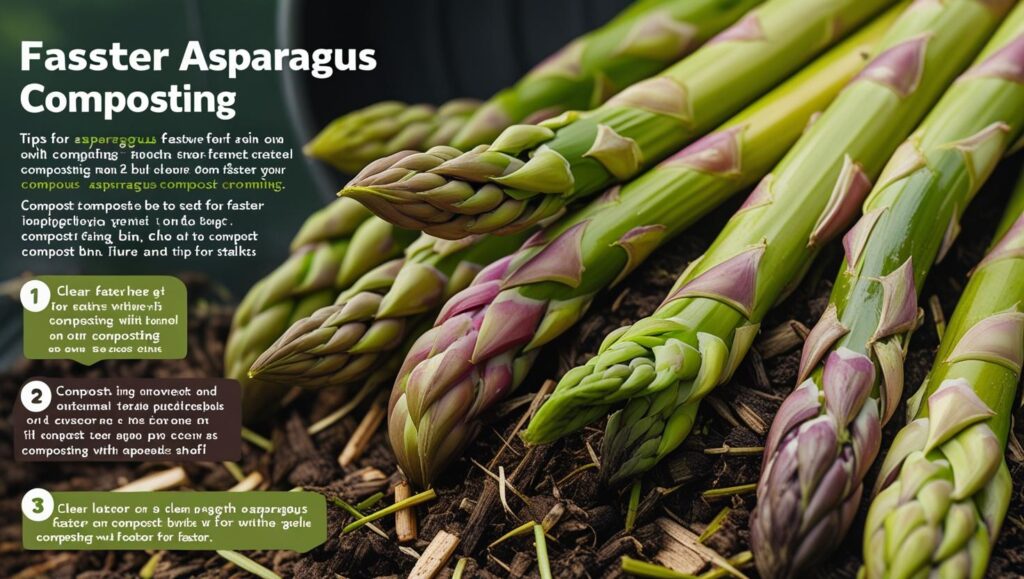
Tips for Faster Asparagus Composting
- Chop finely – Smaller pieces break down faster.
- Mix well – Distribute asparagus evenly in the pile.
- Add activators – Coffee grounds, grass clippings, or compost starter.
- Avoid overload – Too much asparagus can cause odor issues.
Pros and Cons of Composting Asparagus
| Pros | Cons |
|---|---|
| Reduces kitchen waste | Stalks may take longer to break down |
| Improves soil health | Needs proper green-brown balance |
| Eco-friendly solution | Can attract pests if unmanaged |
| Saves money on fertilizers | Requires regular turning |
Frequently Asked Questions
Q1: Can I put cooked asparagus in my compost?
Ans: Yes, but avoid asparagus with oil, butter, or seasoning, as it may attract pests.
Q2: Does asparagus take longer to compost?
Ans: Slightly, due to its fibrous stalks. Chopping and aerating can speed up the process.
Q3: Can I compost asparagus roots or ferns from my garden?
Ans: Yes, but dry them first or chop into smaller pieces to help decomposition.
Conclusion
Asparagus composting is an easy and effective way to turn kitchen and garden scraps into valuable soil fertilizer. By following the right balance of greens and browns, chopping stalks into smaller pieces, and maintaining moisture and aeration, you can create high-quality compost in just a few months.
